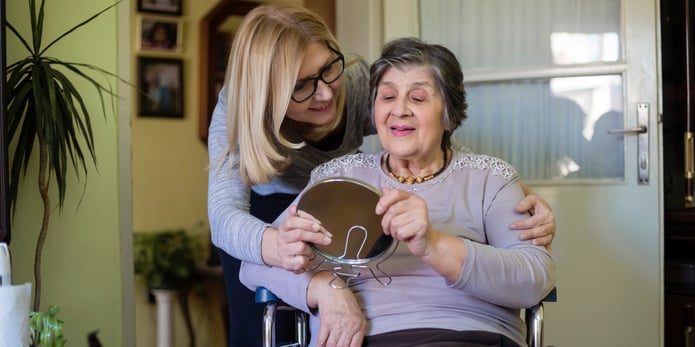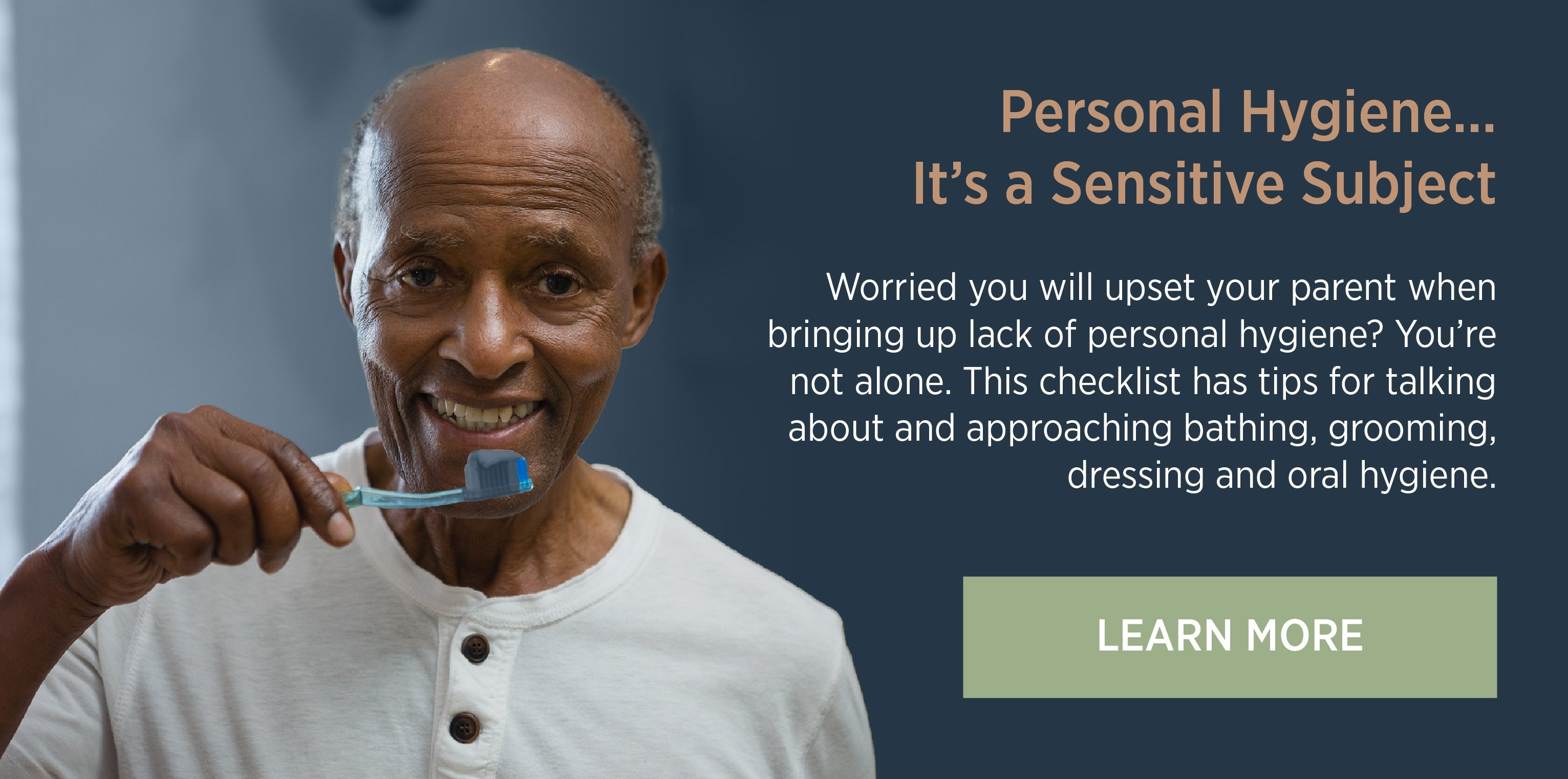
If you’ve noticed signs that your loved one isn’t taking as good care of themselves as they once did, you may be wondering how to bring it up without embarrassing them.
Fortunately, there’s a way to approach the conversation in a way that leaves your loved one feeling safe and supported while maintaining their dignity. But before you say something, it helps to understand why some seniors struggle with personal hygiene in the first place.
Why Older Adults Struggle with Hygiene
It’s easy to forget just how complex personal hygiene can be. Consider that in order to bathe, you must undress, enter a space with slippery surfaces, clean hard-to-reach places, and then dry your entire body.
Now imagine that you’ve slipped and fallen in the bathroom before and stepping into the tub makes you anxious. Or that chronic shoulder pain makes changing clothes physically painful. Or that standing in the shower for more than five minutes leaves you feeling exhausted.
Research shows that nearly 40% of adults over 80 need personal assistance to bathe or have difficulty washing or drying their whole body. Some of the most common factors contributing to bathing difficulties include:
- Fear and discomfort
- Dulling senses
- Boredom
- Depression
- Memory loss or other cognitive impairment
Studies also indicate that older adults resist help with bathing because it’s physically painful, it’s embarrassing, and it represents loss of independence.
The good news is that the stressors associated with personal hygiene can be modified. The first step is letting your aging parent know that you have noticed some changes and that you want to help.
6 Tips for Talking to an Older Person About Personal Hygiene
1. Focus on the Person, Not the Task
Demanding a parent to take a shower or change their clothes likely will end up in frustration or an argument, leaving you just as frustrated as before and your loved one feeling a loss of control or even attacked.
Instead, consider that aggressive or resistive behaviors are often defensive actions older adults take when feeling threatened and anxious. By shifting the focus to getting to know your loved one’s challenges and preferences, you can greatly reduce discomfort around hygiene.
2. Share Observations in Private
Lack of hygiene is a sensitive subject and one that can spark feelings of embarrassment or frustration. Be sure to approach the subject in a private place.
Start the conversation by sharing your observations. You might say something like, “I’ve noticed you aren’t changing your clothes often. Has anything changed recently?”
3. Ask About Their Preferences
How we care for our bodies has changed over the years. For example, when your grandparents were growing up, a weekly bath might have been the norm. Plus, each person’s idea of personal hygiene differs.
Research shows that giving older adults a choice about when and how to bathe, as well as the opportunity to bathe themselves, when possible, promotes success.
Ask your loved one more about their preferences and abilities so you can figure out the best way to support them. Make it clear that you want to offer assistance, rather than take control. You might say something like: “Would it be OK for us to make a plan together? Do you prefer to bathe in the morning or at night?”
4. Act Casual
Act casual — even if you don’t feel it. A laid-back attitude may help relax your loved one in what may be an uncomfortable situation for both of you.
5. Be Matter-of-fact
If memory loss is contributing to your loved one’s poor hygiene issues, it helps to be matter-of-fact about bathing. Say, “It’s time for a bath now.” Don’t argue about the need for a bath or shower.
Help your loved one remain as independent as possible. Ask if they need you to get the items ready or physically assist them. Sometimes they just need items laid out. Try to let them do as much as possible to help them feel independent.
6. Offer Solutions
One of the most helpful things you can do is to offer solutions to your loved one’s hygiene challenges. Maybe that’s offering assistance yourself, but it could also be coordinating an in-home caregiver to come in and help with bathing and grooming or exploring assisted living or memory care communities, where caregivers are experts in encouraging proper hygiene without hassle.
Cleaning Up Personal Care
Challenges maintaining good hygiene practices or a consistent hygiene routine may be more common than you may think, and there are many reasons why your parent may be refusing to bathe or change their clothes, from depression and boredom to fear and memory loss.
For more tips for talking with your loved one about this sensitive issue, as well as practical ways to help them maintain their personal hygiene, check out our Personal Hygiene Checklist for Older Adults. It includes more specific suggestions for adjusting the way you talk about and approach bathing and grooming and will help you devise a successful strategy for cleaning up their personal care.
With a little support and a lot of love, addressing personal hygiene with a loved one doesn’t have to result in a battle.






